MedCities supported the organisation of the “Mediterranean Urban Agendas Exchange session” event hosted by the Departament de Territori of Generalitat de Catalunya amidst the MedCatDays, a busy week in Barcelona to discuss Mediterranean shared challenges and collaboration roadmap.
The “Mediterranean Urban Agendas Exchange” session gathered over 30 stakeholders, mostly public administrations from the local and regional scale, to discuss Mediterranean urban agendas, the challenges of their design and the interesting ways their implementation is addressed from different spots of the basin. The event was opened by Ms Ester Capella i Farré, Catalan Councillor for Territory, who highlighted the importance of a strategic vision covering the whole territory: “The Urban Agendas is a process of co-creation and requires a lot of exchange between regional and local authorities”. By her side, the Councillor of External Action and European Union, Ms Meritxell Serret, closed the session with a call to cooperate for a “living and sustainable Mediterranean”. Serret also had words of recognition for MedCities and the MedCoopAlliance, of which the two entities are partners because it helps to “bring the vision of the Mediterranean to European institutions”.

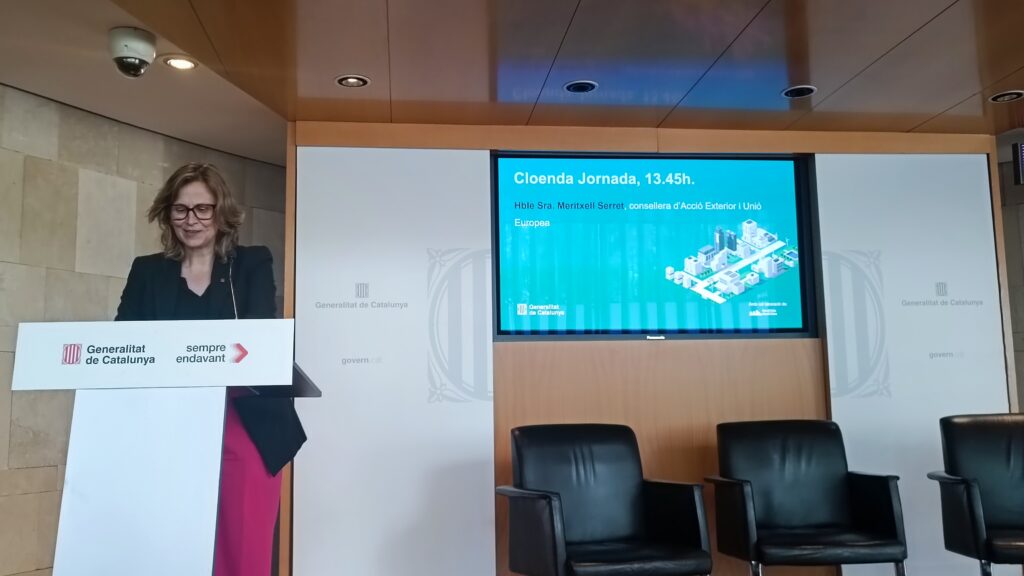
The General Director of Agenda and Regeneration, Ms Ne·la Saborit explained the process of creating the Urban Agenda of Catalonia and the next steps that need to be taken to concretize the agendas moving forward in a planned way towards the consolidation of synergies between actors. “It is also necessary to find evaluation mechanisms to rectify and adjust and also create a project laboratory to have concrete examples”.
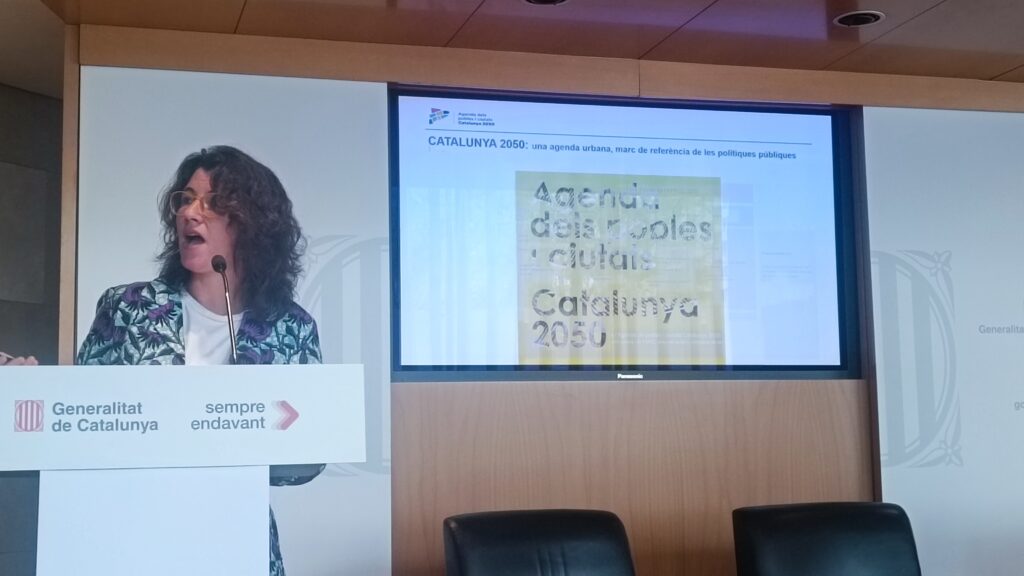
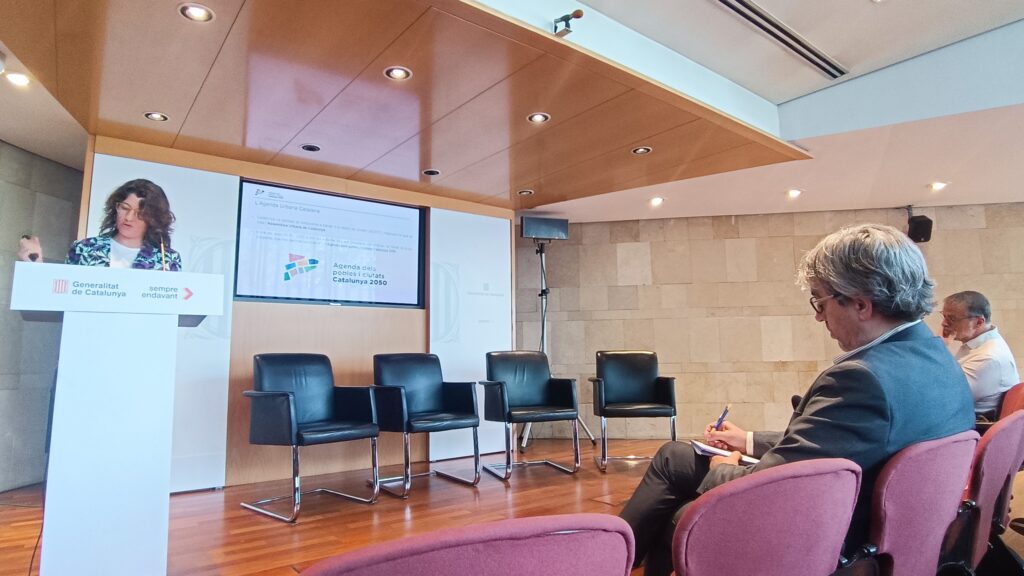
For this occasion, MedCities was commissioned to mobilise different Mediterranean cases of strategic planning that discussed multi-level governance, participative processes, planning design, implementation or reporting results. Ms Ana B. Moreno, urban anthropologist and journalist, acted as moderator, using her experience as leader of the preparatory process of the New Urban Agenda, in the capacity of the general coordinator of the Habitat III Conference.
The first round table focused on strategic planning and featured the cases of the Tangier-Tetouan-Al Hoceima Regional Council (Morocco) by its director of Regional Planning and Development, Mr. Hicham Bouziane; the Provincial Council of Barcelona by its Head of Urbanism Services, Ms Pilar Cervantes; and the experience of Malaga brought by Ms Carmen Garcia the Managing Director of CIEDES Foundation. The key issues raised were territorial coverage and multi-level governance articulation; innovative governance models such as Malaga’s “governance without government”; and achieving a long-term vision for the plans that ensures implementation across political challenges, for which flexibility is important.

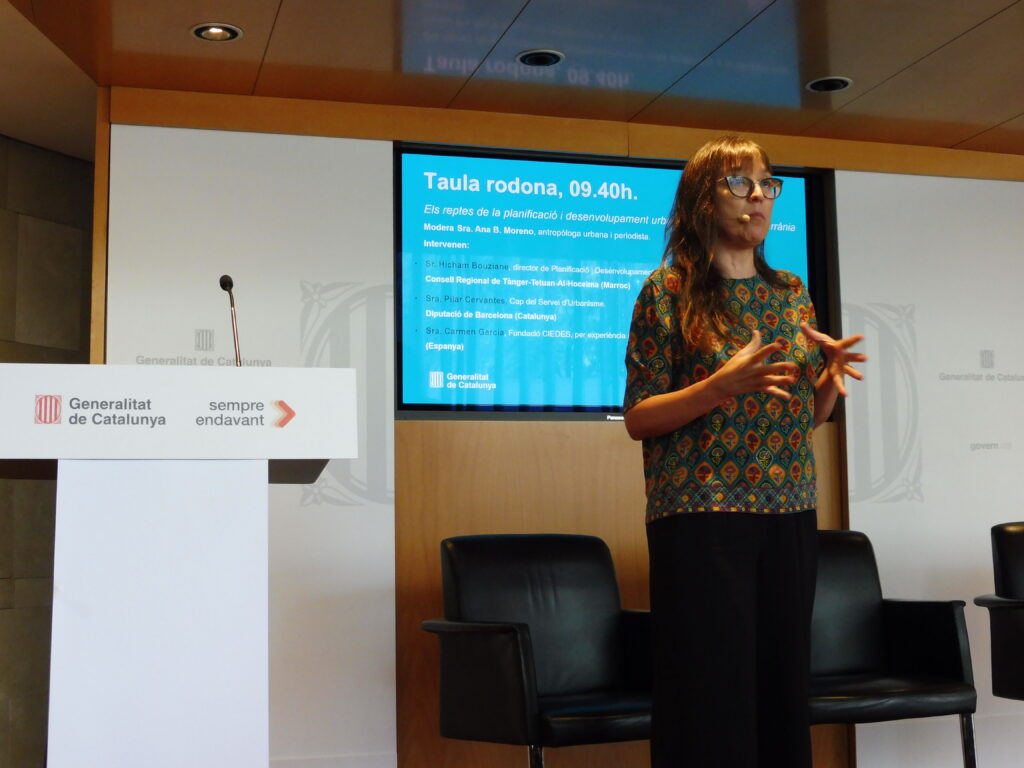

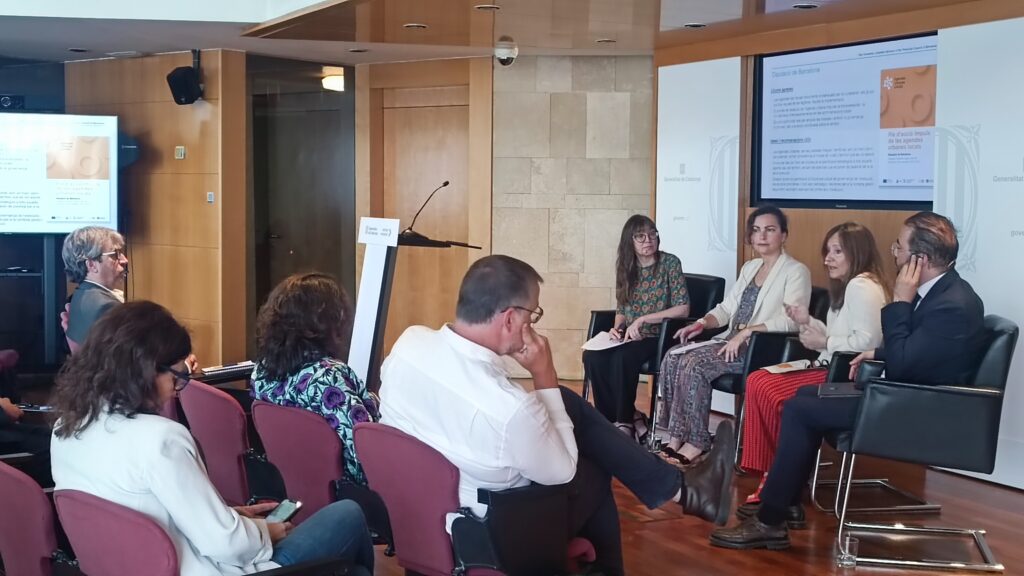
The second round table addressed the challenges and key drivers of implementing such agendas by tackling the issues related to reporting and data gathering, financing transformative projects and keeping political commitment throughout implementation. The discussion was led by Mr Nasir Abdallah Mohammad Qandeel, from the Urban Observatory of Amman of the Greater Amman Municipality (Jordan); and Ms Monica Visentin, from the Union of Municipalities of Romagna Faentina, Region of Emilia Romagna (Italy). Unfortunately, due to multiple flight delays, Ms Dalya Hazar, director of the Vision 2074 Unit, of the Strategic Department of the Izmir Metropolitan Municipality (Türkiye) could not join the session but her contribution will surely be integrated into the follow-up documentation.

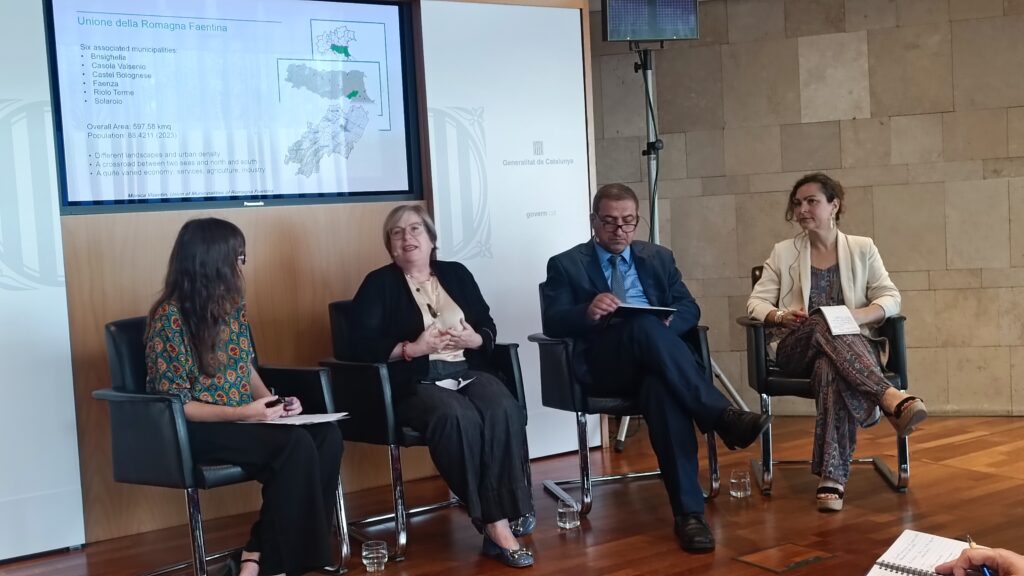


The lessons learnt and recommendations addressed by both tables will be elaborated in a report outlining a strategic roadmap for the synergies and collaborations this first session can generate.

اشتركوا في النشرة الإخبارية الشهرية لتصلكم آخر الأخبار.

Nam porttitor blandit accumsan. Ut vel dictum sem, a pretium dui. In malesuada enim in dolor euismod
Nam porttitor blandit accumsan. Ut vel dictum sem, a pretium dui. In malesuada enim in dolor euismod

Nam porttitor blandit accumsan. Ut vel dictum sem, a pretium dui. In malesuada enim in dolor euismod

Nam porttitor blandit accumsan. Ut vel dictum sem, a pretium dui. In malesuada enim in dolor euismod
Nam porttitor blandit accumsan. Ut vel dictum sem, a pretium dui. In malesuada enim in dolor euismod

Nam porttitor blandit accumsan. Ut vel dictum sem, a pretium dui. In malesuada enim in dolor euismod